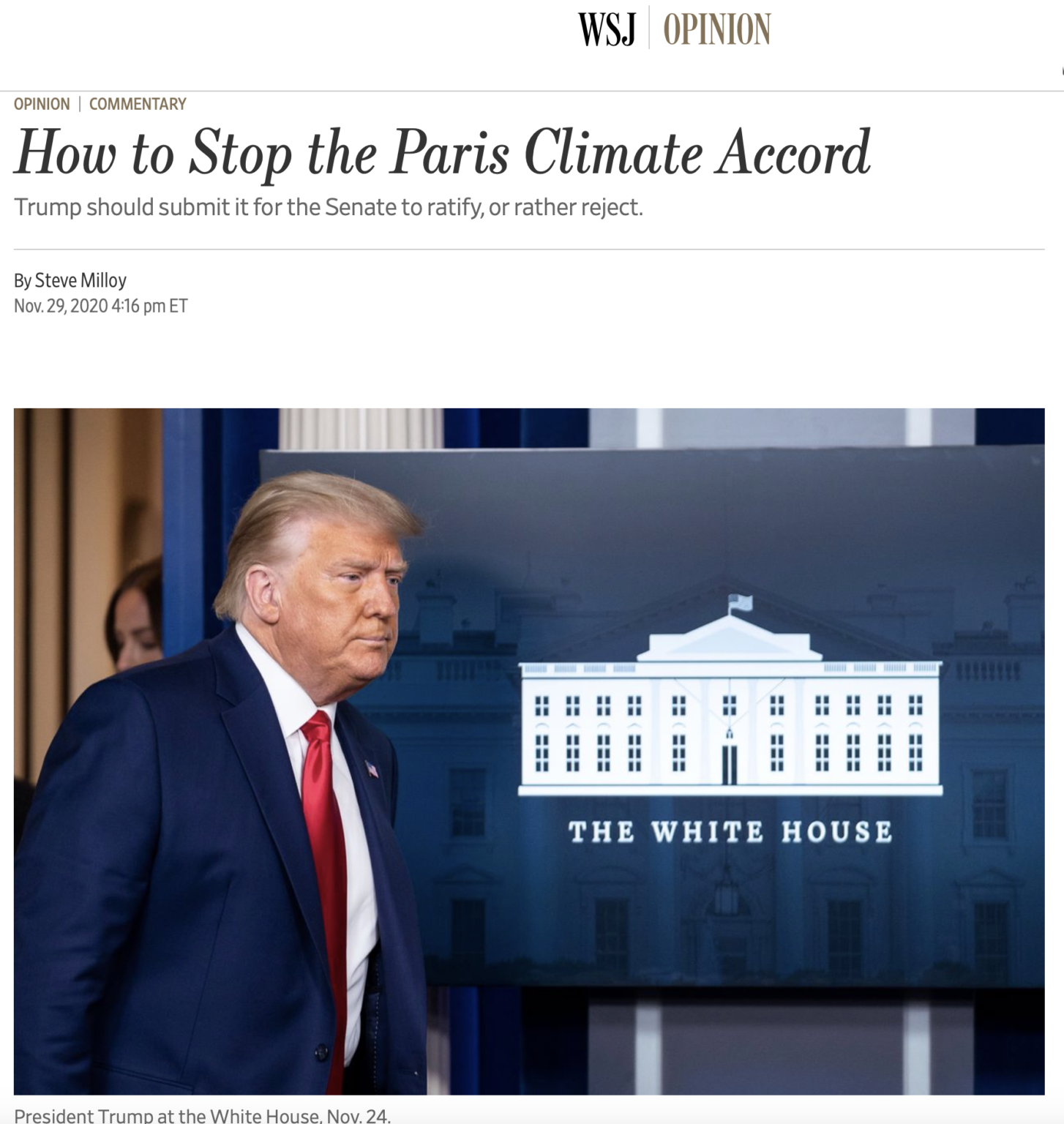by Steve Milloy, E&E Legal Senior Policy Fellow and Junkscience.com Founder
As Appearing in the Wall Street Journal
Trump should submit it for the Senate to ratify, or rather reject
Joe Biden has promised to rejoin the Paris Climate Accord on day one, but President Trump could stop it from having any binding legal power.
President Obama signed on to the international agreement by executive action in 2015, which meant Mr. Trump could withdraw from it the same way, as he did in 2017. As per the terms of the accord, that withdrawal became effective on Nov. 4, 2020. Mr. Obama’s pledge to reduce greenhouse-gas emissions at least 26% by 2025 wasn’t legally binding. Only Senate consent to its ratification could have made it so—and the upper chamber would have rejected the treaty handily if Mr. Obama had submitted it.
Yet if Mr. Biden brought the U.S. back into the accord, it’s possible it will take on the weight of law. Although there is nothing about the agreement’s terms or the manner in which the U.S. entered it that make it legally binding on the U.S., some green group may find a friendly federal court to produce that result.
Example: Mr. Trump rescinded Mr. Obama’s 2012 Deferred Action for Childhood Arrivals immigration program, yet it remains in place. Although DACA was both created and reversed by executive action, the Supreme Court blocked its rescission in June on grounds that the Trump administration’s decision was “arbitrary and capricious” under the Administrative Procedures Act. The court’s rationale was procedural; the justices didn’t deny that the president can reverse a predecessor’s executive action. But creative lawyers and judges can find ways of blocking a new president from changing policies, with Congress never having a say.






